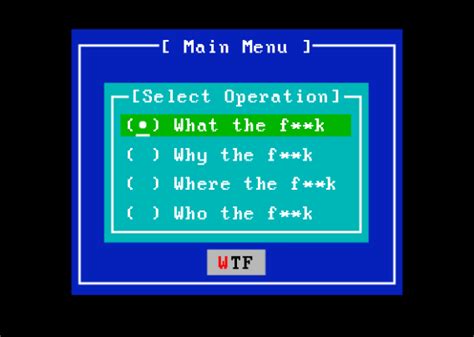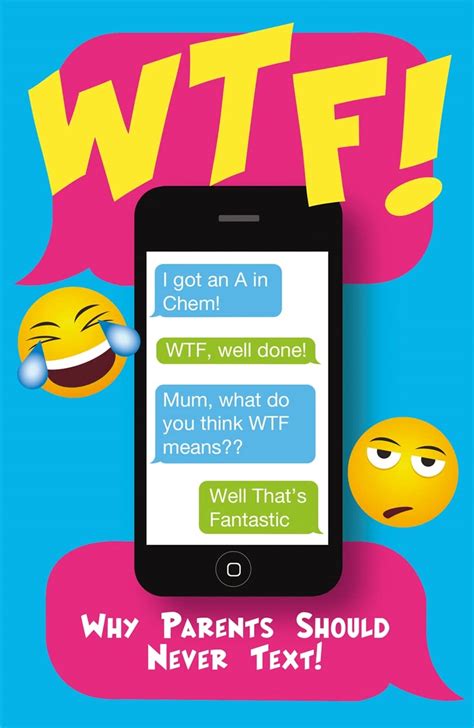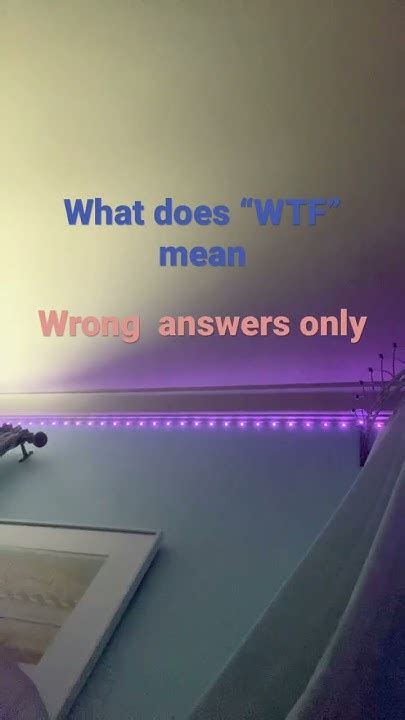The acronym "WTF" is a commonly used expression in modern language, particularly in digital communication and informal settings. It stands for "What The F," with the "F" being an expletive that is often censored or implied rather than explicitly stated. The phrase is used to express shock, surprise, frustration, or confusion, depending on the context in which it is used.
Origins and Usage

The origins of “WTF” can be traced back to the early days of the internet and text messaging, where abbreviations and acronyms were used to convey emotions and reactions quickly and efficiently. Over time, “WTF” has become a ubiquitous term, transcending digital boundaries to be used in spoken language as well. It’s a versatile expression that can be used in various situations, from reacting to unexpected news or events to expressing disbelief or astonishment.
Variations and Related Expressions
While “WTF” is the most common form, there are variations and related expressions that convey similar sentiments. For example, “WTG” stands for “Way To Go” and is used to express congratulations or approval, which is the opposite of the shock or dismay conveyed by “WTF.” Another variation, “WTH,” stands for “What The Heck” and is a milder, less explicit version of “WTF,” used in more polite or formal contexts.
| Acronym | Meaning | Usage Context |
|---|---|---|
| WTF | What The F | Informal, to express shock or frustration |
| WTG | Way To Go | Congratulatory, formal or informal |
| WTH | What The Heck | Milder expression of surprise, formal or informal |

Implications and Cultural Significance

The widespread use of “WTF” and similar expressions reflects the evolving nature of language in the digital age. These terms have become an integral part of internet culture and slang, symbolizing the informal and often irreverent nature of online communication. However, their use can also be seen as indicative of a broader trend towards informality and the blurring of lines between formal and informal language use.
Future of Language and Communication
As language continues to evolve, driven by technological advancements and changing social norms, expressions like “WTF” will likely remain part of the linguistic landscape. Their endurance speaks to the adaptability and creativity of human communication, highlighting the importance of understanding and navigating the nuances of language in both personal and professional contexts.
Key Points
- "WTF" stands for "What The F" and is used to express shock, surprise, or frustration.
- The term originated in digital communication and has become widely used in informal settings.
- Variations like "WTG" and "WTH" convey different sentiments, with "WTG" being congratulatory and "WTH" being a milder version of "WTF."
- The use of such expressions is context-dependent and should be considered in light of the audience and cultural norms.
- The evolution of language, including the use of "WTF" and similar terms, reflects broader trends in communication and societal norms.
In conclusion, understanding the meaning and implications of "WTF" and related expressions is essential for navigating modern language and communication effectively. By recognizing the nuances and contexts in which these terms are used, individuals can foster more respectful and effective communication in both personal and professional spheres.
What does “WTF” stand for?
+“WTF” stands for “What The F***,” an expression used to convey shock, surprise, or frustration.
How is “WTF” used in communication?
+“WTF” is commonly used in informal settings, such as text messages, social media, and casual conversations, to express a strong reaction to something.
Are there variations of “WTF”?
+Yes, variations include “WTG” for congratulations and “WTH” as a milder, less explicit version of “WTF.”



